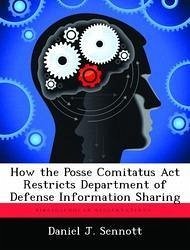
Connecting the Dots: Enduring Challenges in the Nation's Information Sharing Environment
Versandkostenfrei!
Versandfertig in über 4 Wochen
52,99 €
inkl. MwSt.

PAYBACK Punkte
26 °P sammeln!
Since the horrific attacks of September 11, 2001, the nation has seen the largest expansion and reorganization of government since the National Security Act of 1947, transforming the nation's homeland security system around, amongst other things, an information sharing environment. Nearly a decade later this study asks, what are the enduring challenges that continue to hinder stakeholders in the information sharing environment from effectively sharing terror-related information to prevent future catastrophes. This study posits that four enduring tensions continue to stymie relevant stakeholder...
Since the horrific attacks of September 11, 2001, the nation has seen the largest expansion and reorganization of government since the National Security Act of 1947, transforming the nation's homeland security system around, amongst other things, an information sharing environment. Nearly a decade later this study asks, what are the enduring challenges that continue to hinder stakeholders in the information sharing environment from effectively sharing terror-related information to prevent future catastrophes. This study posits that four enduring tensions continue to stymie relevant stakeholders from effectively sharing terrorism-related information. First, much needed fine-tuning of the nation's information sharing environment lost momentum in a transition year where policymakers where distracted by bitter partisan politics and competing domestic policy agenda items. Second, sub-optimization of the information sharing environment contributed to a failure to address emerging threats, especially those involving an increasing number of self-radicalized, "lone wolf" conspirators. Third, the current information sharing environment remains over saturated with too many incompatible information systems, frustrating efforts by stakeholders in the information sharing environment from effectively retrieving relevant, actionable information on looming terror plots. Finally, ad hoc agreements between federal agencies, specifically Defense and the Justice, are unclear, lack effective standards and are too informal to mandate action. Applying the U.S. Army's emerging design doctrine, this study explores the nature of the information sharing environment, defined here as both a complex adaptive supra-system and wicked problem. The study applies design's cognitive environmental, problem and solution frames as the lens for gleaning greater understanding of the true nature of the ill-structured problem. It then compares understanding of the homeland security system against two terror-














